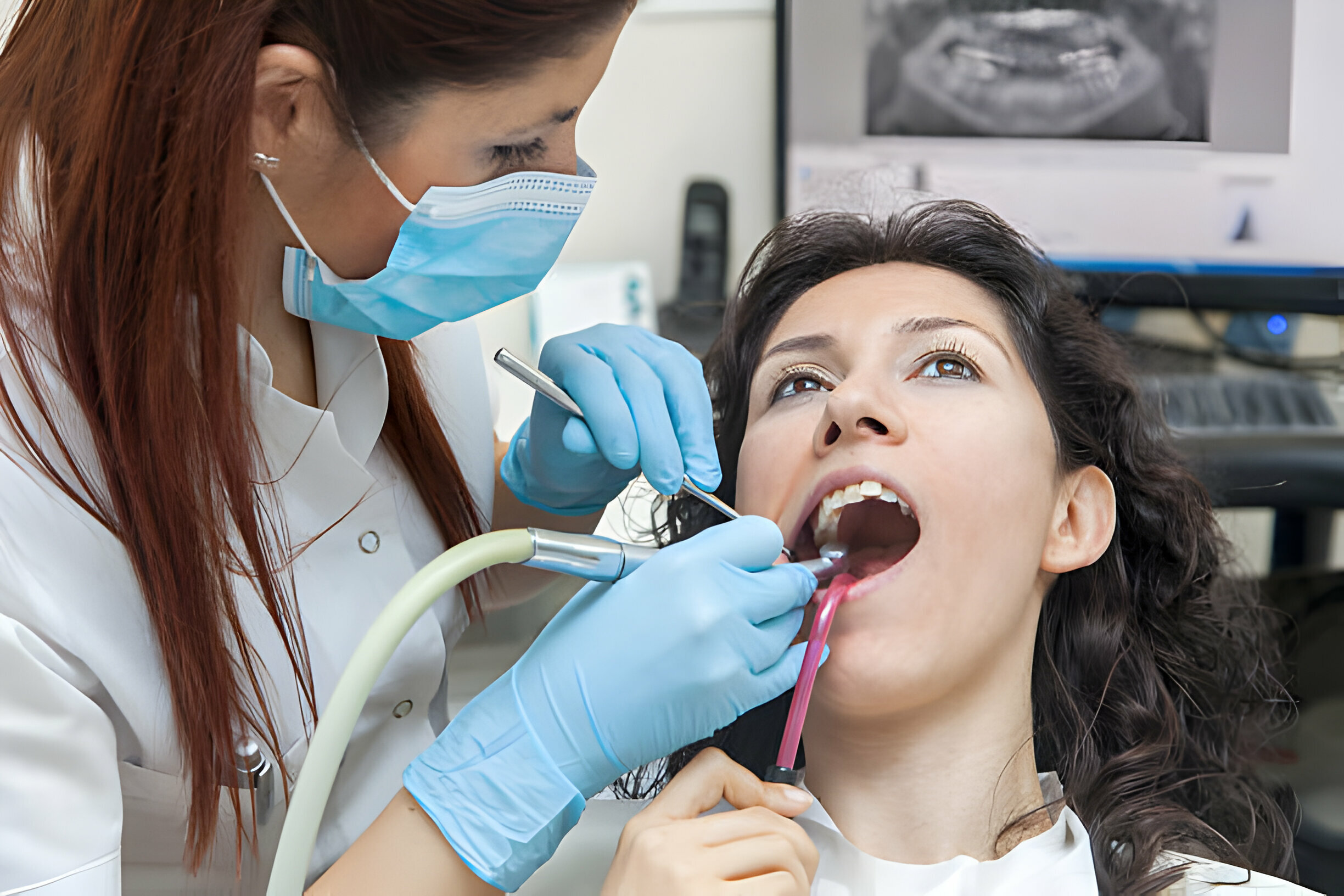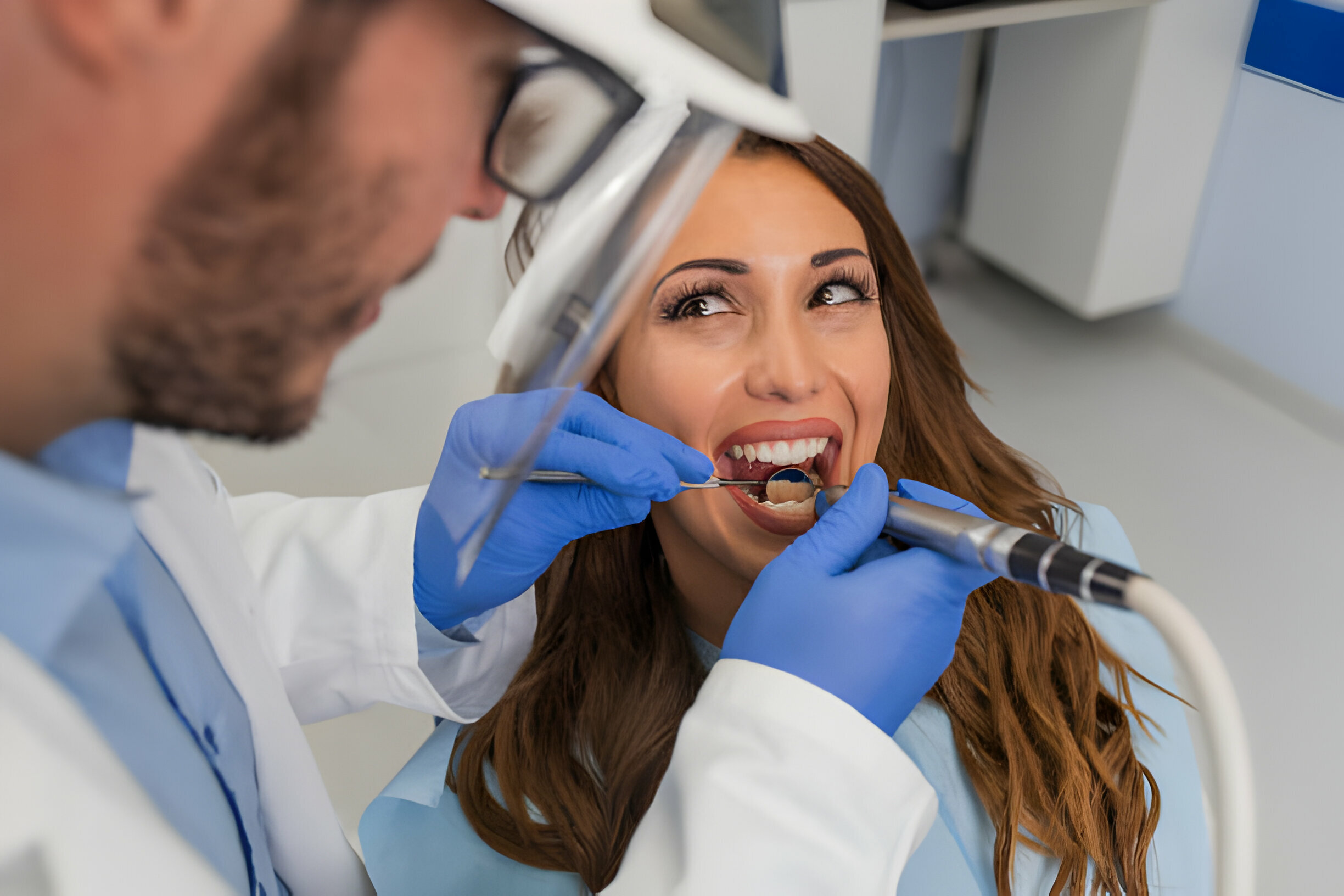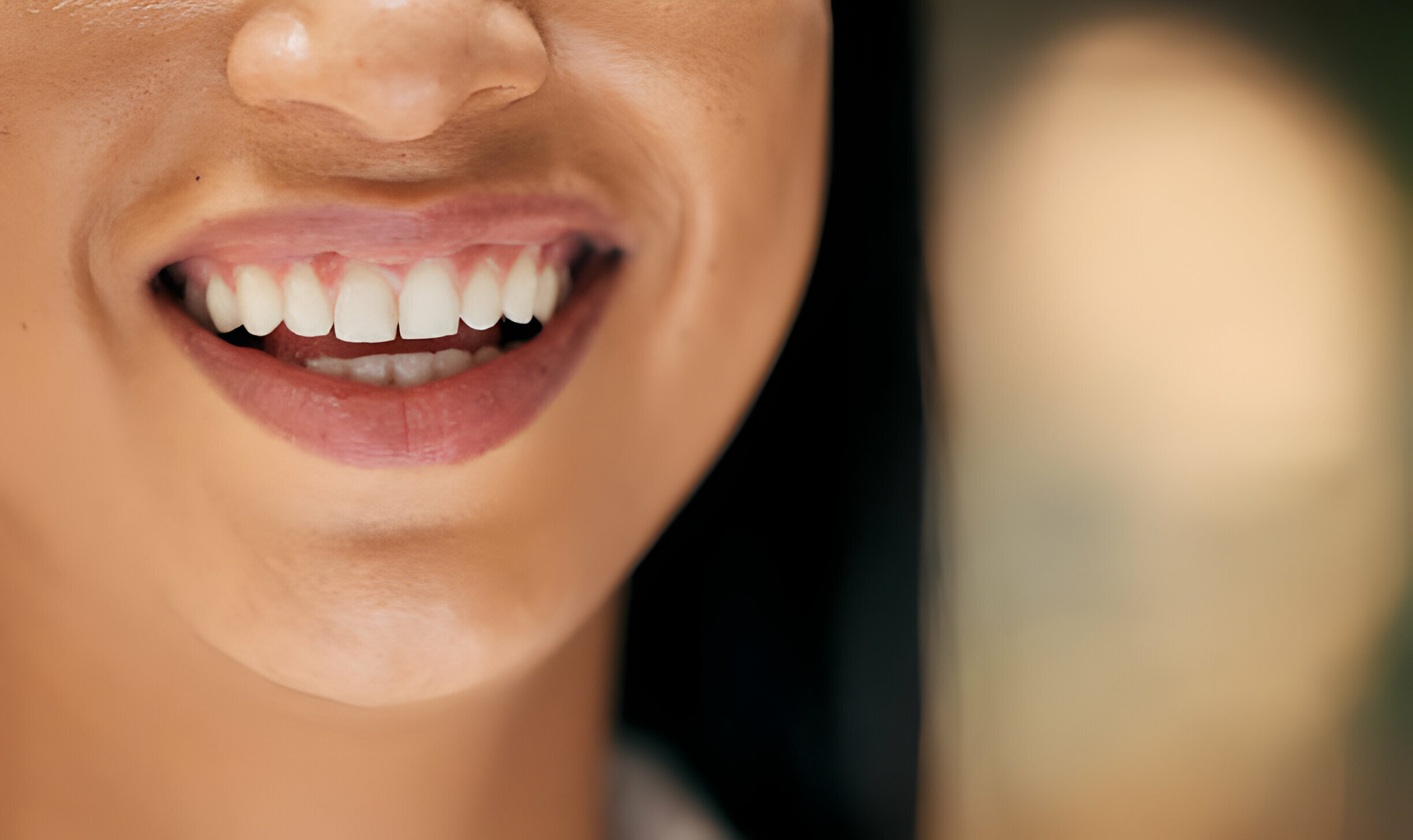Summary:
Proper oral hygiene is paramount for optimal oral health but doesn’t necessarily eliminate all the dirt and bacteria from your mouth. This is because sometimes you may miss certain corners of your mouth, paving the way for plaque and tartar buildup.
That is why you should visit your dentist every six months for deep teeth cleansing. It allows your dentist to understand your dental health and tailor cleaning treatment to remove plaque and keep the bacteria at bay.

There are different types of teeth cleaning, so you might need clarification as to which one to choose for your needs. Several individuals have similar doubts, so we are here to give you a deep insight into this topic.
In the following sections, we shall delve into:
- Why Dental Cleaning is Optimal For Your Oral Health?
- How to Understand Which Treatment Type is the Best For You?
- Different Types of Teeth Cleaning at the Dentist
- The Long-Term Benefits of Dental Cleanings
Continue reading as we understand the types of dental cleaning and which is best for you in the following sections.
Why Dental Cleaning is Optimal For Your Oral Health?
Regular brushing and flossing is the best way to keep your clean and dental health in check. Despite that, certain corners of your mouth can deposit dirt over time, and if these deposits are left untreated, you may develop cavities, gum disease, and other oral issues.
Around 3.5 billion people worldwide are affected by various kinds of oral diseases due to improper oral hygiene. Dental cleaning can prevent oral diseases and other oral illnesses through a deep cleansing treatment.
Professionals remove plaque, tartar, and stains from the teeth. This procedure is crucial for maintaining oral hygiene and preventing gum disease, tooth decay, and bad breath.
Regular cleanings are necessary to uphold optimal oral health and detect any potential issues before they escalate.
Different Types of Teeth Cleaning at the Dentist
Regular cleaning is crucial for maintaining oral health and preventing issues and illnesses. Depending on the individual needs and the amount of plaque and tartar buildup, Gallup’s dentist will recommend different types of cleanings to you. Here are some of the common types:
Prophylaxis (Regular Cleaning)
This is the cornerstone of preventive care, which dentists usually perform during routine dental check-ups. Prophylaxis involves the removal of plaque, tartar, and surface stains from the teeth using specialized instruments.
By eliminating these harmful deposits, prophylaxis helps prevent the onset of gum disease, tooth decay, and other oral health problems. It also makes the teeth feel smooth and brighter, contributing to a confident smile.
Deep Cleaning (Scaling and Root Planing)
Deep cleaning for teeth, also known as scaling and root planing, is recommended for individuals with gum disease, such as gingivitis or periodontitis. Plaque and tartar accumulation are removed below and above the gumline using a more extensive technique.
Scaling entails methodically eliminating these deposits, whereas root planing focuses on smoothing the roots to deter bacterial development and aid in gum tissue reattachment. Deep cleaning is critical for preventing gum disease development and restoring gum health.

Gross Debridement
In cases where extensive plaque and tartar accumulation hinder a thorough dental examination, a gross debridement may be necessary. This initial step involves the removal of heavy deposits of plaque and tartar to facilitate a comprehensive assessment of oral health.
Once the dentist has cleared the obstructive buildup, they can proceed with a more detailed examination and determine the appropriate course of treatment.
Periodontal Maintenance
Following treatment for gum disease, patients require ongoing periodontal maintenance cleanings to manage the condition and prevent recurrence. These gingivitis cleanings involve more than regular prophylaxis and may include scaling and root planing as needed.
Periodontal maintenance appointments typically occur at regular intervals determined by the dentist, ensuring that gum health is monitored and maintained over time.
Full Mouth Debridement
Like gross debridement, full mouth debridement with dental wash aims to remove heavy plaque and tartar buildup, particularly in individuals who have neglected care for an extended period.
Addressing the substantial accumulation of deposits allows for a thorough assessment of oral health status and facilitates the development of a personalized treatment plan.
Chemical Cleaning (Antimicrobial Therapy)
Dentists may sometimes incorporate antimicrobial agents or mouth rinses into the cleaning process to enhance efficacy, particularly in treating gum disease.
These chemical adjuncts complement mechanical cleaning procedures by targeting bacteria responsible for periodontal infections. By combining mechanical and chemical approaches, dental professionals can achieve more comprehensive results in managing gum disease and promoting oral health.
How to Understand Which Treatment Type is the Best For You?
Seek guidance from your dentist to determine the most suitable dental cleaning for your situation, who can evaluate your oral health and recommend the appropriate procedure. Factors such as gum health, plaque accumulation, and any existing dental issues will influence the choice of cleaning method.
Your dentist may propose options ranging from a standard prophylaxis cleaning to a more thorough scaling and root planing treatment based on their assessment of your dental needs.
The Long-Term Benefits of Dental Cleanings
Regular dental cleanings offer more than a brighter smile; they are essential for maintaining oral and overall health. Here are some critical long-term advantages of prioritizing cleanings:

- Prevention of Gum Disease: Dental cleaning or Gingivital cleaning removes plaque and tartar buildup, major contributors to gum disease. Keeping your gums healthy reduces the risk of developing gingivitis or more severe periodontal disease over time.
- Cavity Prevention: Professionals like dentist cleanings target areas that regular brushing and flossing may miss, helping to prevent cavities. Removing plaque buildup ensures that harmful bacteria don’t have the opportunity to erode tooth enamel and cause decay.
- Early Detection of Dental Issues: Routine dental cleanings include comprehensive exams, allowing dentists to detect potential issues early on, such as cavities, gum disease, or oral cancer. Early detection enables prompt intervention, preventing these problems from worsening.
- Preservation of Tooth Enamel: Plaque and tartar buildup can lead to enamel erosion if left untreated. Dental cleanings help remove these substances, preserving the integrity of your tooth enamel and ensuring strong, healthy, clean teeth in the long run.
- Fresh Breath: In addition to removing plaque and tartar, dental cleanings eliminate bacteria that contribute to bad breath. Enjoying consistently fresh breath can boost confidence and contribute to overall oral hygiene.
Takeaways:
- You should visit your dentist every six months for dental cleanings.
- Almost 3.5 billion are affected by oral issues due to improper oral hygiene and bad habits.
- Prophylaxis dental cleaning helps in removing plaque and prevent dental issues and illnesses.
- Scaling or deep cleaning helps prevent gum diseases by removing plaque from the gumline.
- Regular cleaning helps preserve tooth enamel. Make the most of your smile with our experts at Sundance Smiles. Visit our clinic today!



